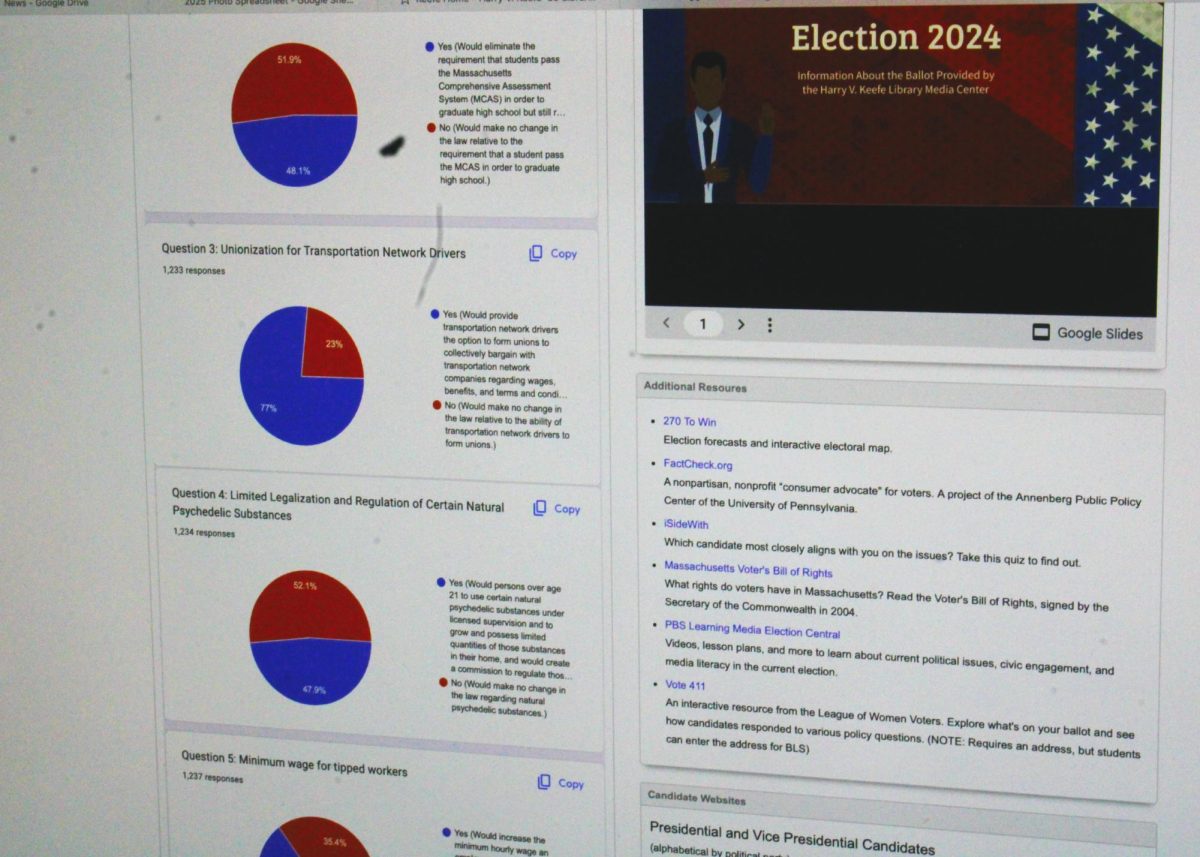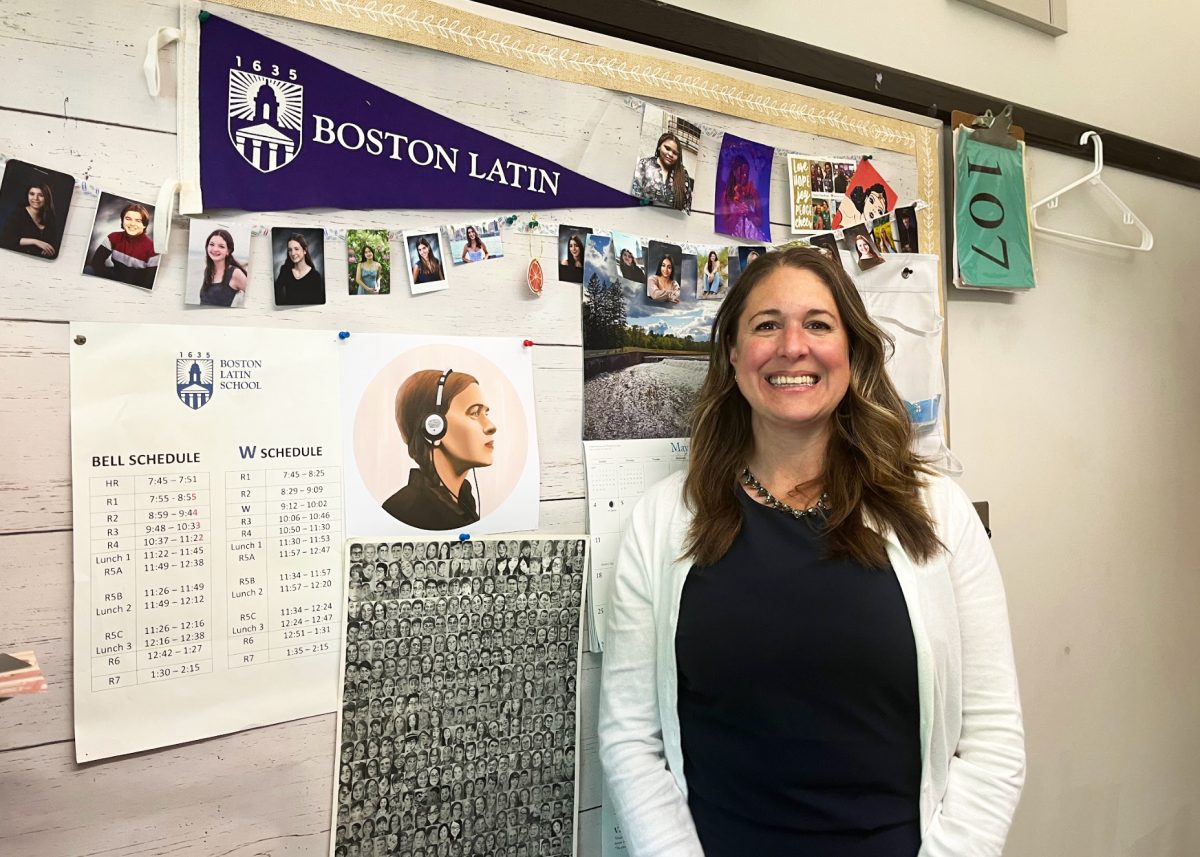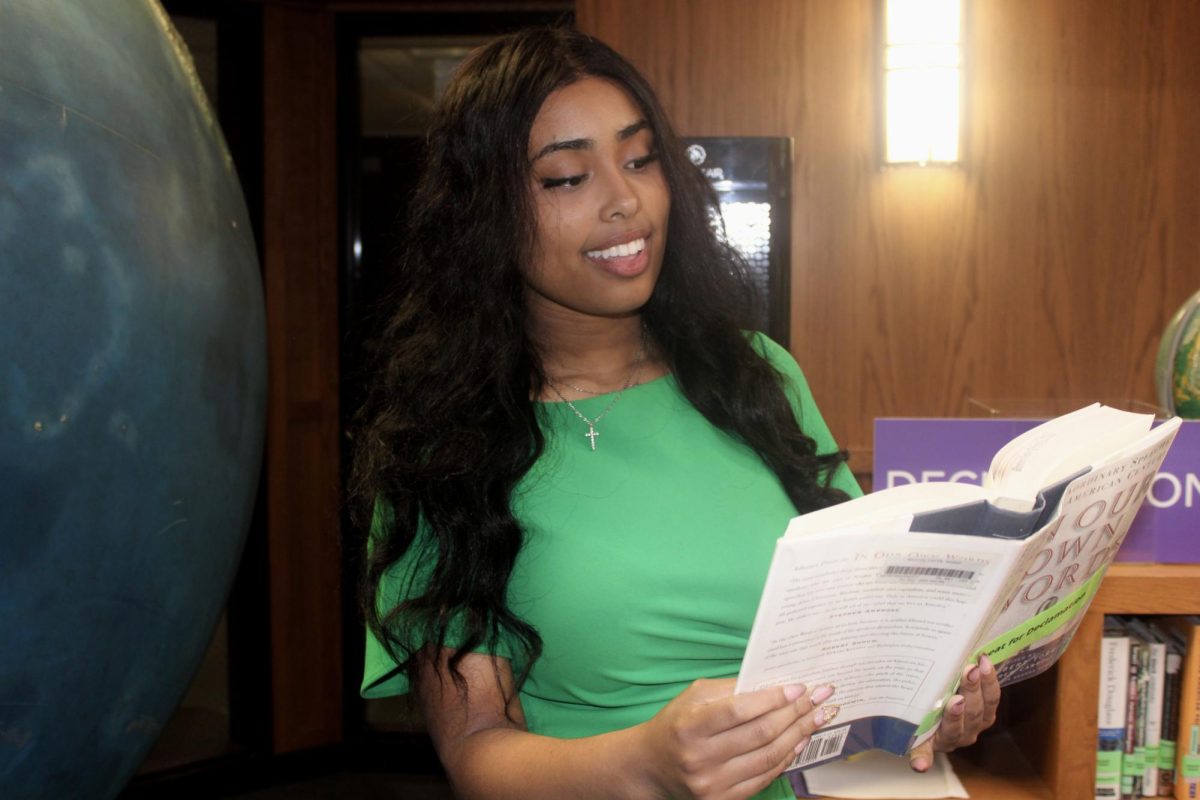Question One: Yes
The Massachusetts state legislature creates and alters laws at the state level, just as the United States Congress does nationally. Prior to the ballot questions, it was one of four states whose legislatures did not have someone to examine its decisions.
The vote for Question One allows the state auditor to inspect and publicly record the legislature’s decisions. Supporters hope to see more transparency in decision-making because legal processes can often feel closed off from the average citizen. The state auditor would be the sole authority in these cases, so some believe that this gave them too much power over a separate branch of government.
With Question One having been passed, the state auditor, Diana DiZoglio, is now permitted to audit the legislature, but her actual impact could be limited by laws regarding separation of powers, and if the legislature refuses to comply. DiZoglio has stated that she will start by surveying if current policies and procedures are equitable.
Question Two: Yes
The Massachusetts Comprehensive Assessment System (MCAS) is a set of standardized tests for students in Massachusetts, starting at third grade and finishing in tenth grade. Almost every state has a set of standard regulations required to graduate from high school.
Question Two proposes to eliminate the MCAS or other statewide and districtwide assessments as a high school graduation requirement. For years, teachers and families have pushed to remove the MCAS because they argue it creates pressure for teachers to only prepare stdents for the test. In addition, many believe that the district faces inequities in preparation and resources depending on the school.
Some, however, are concerned about a lack of standards. “It’s an easy way to test how someone is doing in school and to see if they need help,” notes Vivian Hamwey (I).
As an alternative, students would only be required to complete coursework set by the district that demonstrates mastery according to the state’s academic standards in STEM and English subjects. The Board of Education, as well as Governor Maura Healy’s administration, has already begun discussions on possible replacements for state-wide graduation requirements.
Question Three: Yes
Workers employed by the MBTA drive buses and trains that belong to the government. In contrast, rideshare drivers are independent contractors who offer rides using their own personal vehicles on apps like Uber and Lyft. They have not had the right to unionize and attempt to improve working conditions under the National Labor Relations Act.
In an attempt to increase the drivers’ rights, Question Three proposes that rideshare drivers should be allowed to form labor unions regardless of employment status. Now, these workers can form unions that represent all the rideshare drivers under the condition that a quarter or more of the current active drivers give their approvals, which would allow them to negotiate with transportation companies.
Boston Latin School assistant Civics teacher Ms. Grace Forrester shares possible concerns: “Allowing for unionization will increase the cost of using a rideshare service. This will give more money to the union as a whole rather than ensuring the workers themselves see a raise in their wages.”
There is also controversy about outcomes impacting workers who do not support a union, but ultimately, the goal of the union will be to improve the welfare of these drivers, including proper pay, health coverage and working conditions.
Question Four: No
Psychedelic drugs — substances that can alter the emotions, perceptions and thoughts of individuals—are used more and more frequently for personal use and clinical research. They, however, are illegal and can only be obtained when issued for scientific research or certain psychedelic-assisted therapy.
If passed, Question Four would have allowed all people over the age of 21 in Massachusetts to possess and grow small amounts of natural psychedelic drugs in the form of mushrooms or plants. People who grow small amounts of these drugs would also be permitted to share them, as long as it is for personal use without the intention of being sold.
Along with the legalization of these substances, new industries that comply with state regulations for the usage of psychedelic drugs would then be allowed to distribute these drugs with the goal of supporting therapeutic centers; a 15 percent tax and a government advisory board would also be implemented to oversee an increase in psychedelic use.
Question Five: No
Massachusetts currently has a minimum wage of 15 dollars, but it is 6.75 dollars per hour for tipped workers such as waiters. If an employee’s tips do not sum to 15 dollars, then the employer must pay them the lost wages.
Question Five proposed a raise in the tipped workers’ minimum wages each year until 2029, when it would reach 15 dollars; their hourly wages, for example, would have risen to 9.60 dollars per hour in 2025, then 10.95 dollars in 2026 and so on. Proponents for the law argued that it is unfair to expect customers to subsidize a server’s wage with tips, given the lack of a tipping culture in other countries.
Many tipped workers, however, opposed Question Five. Prices for meals would rise to cover the extra costs and without guaranteed tips, they would likely make less money.
BLS AP Economics teacher Mr. Patrick Boor describes the economic factors, stating, “There was fear that it would be a higher cost for consumers and restaurant owners, and that some of the tips would be shared equally [with other employees].”







